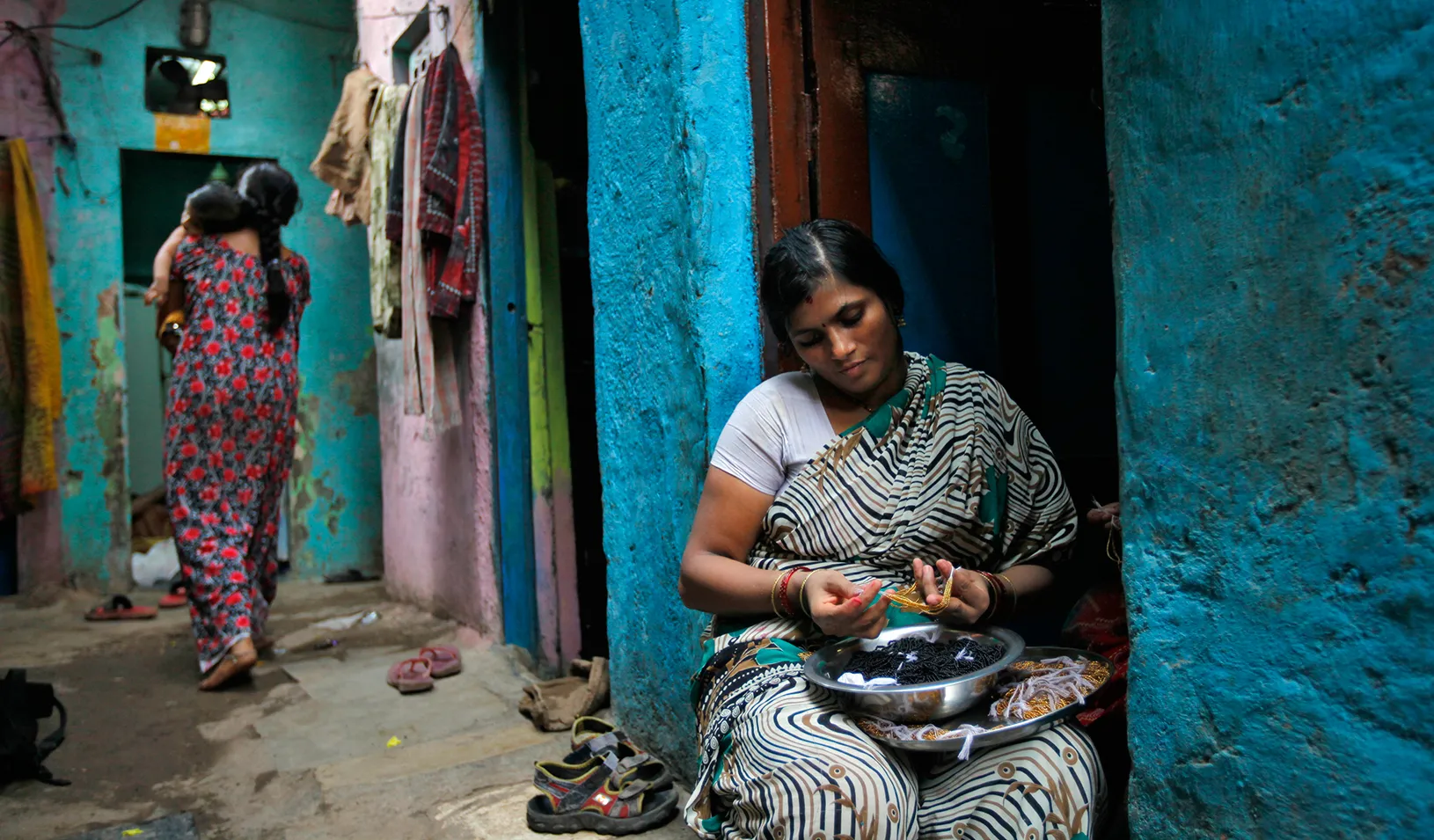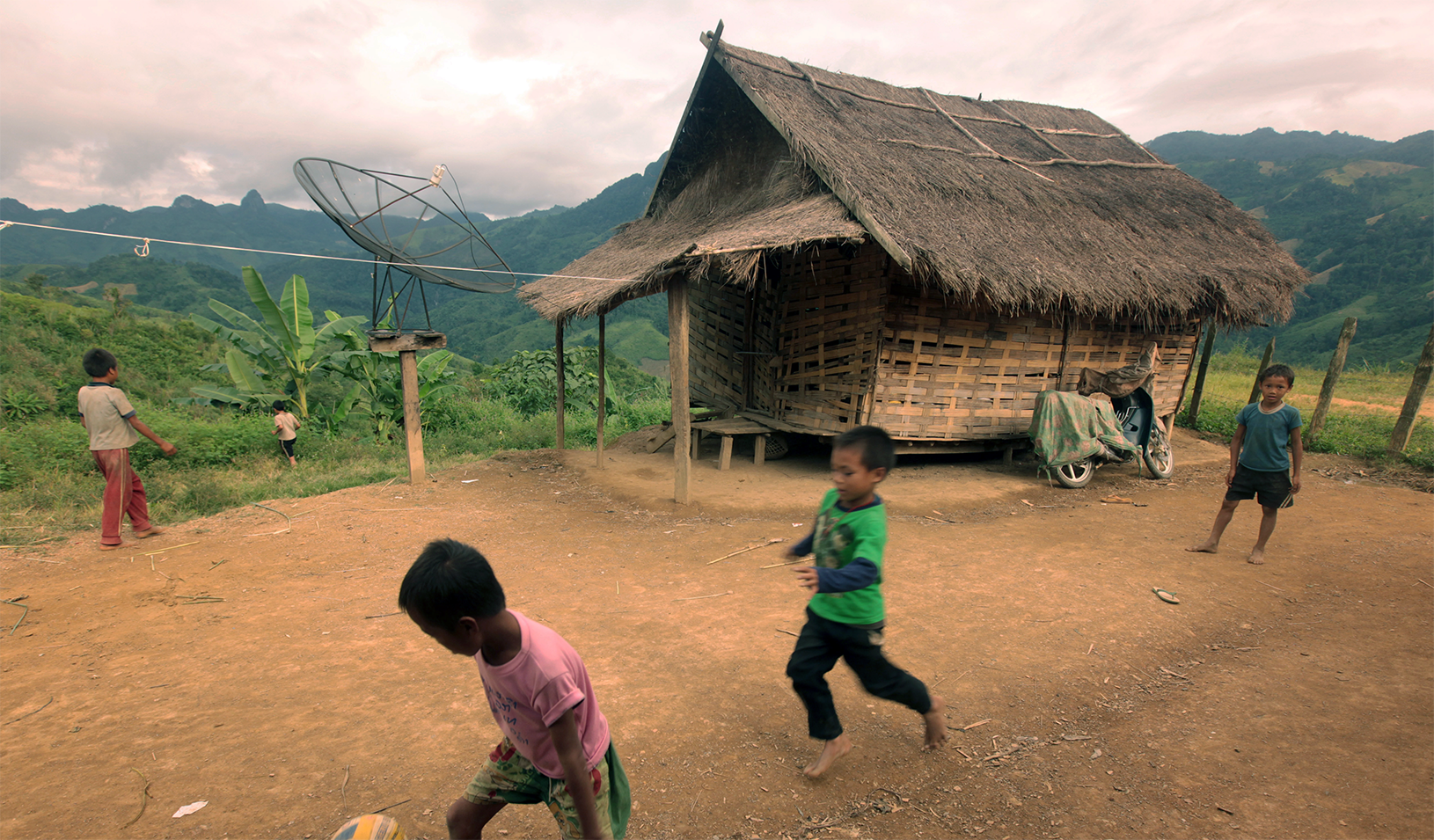January 30, 2015
| by Melissa LeavittOur social networks influence our economic decisions in everyday life, from what bank we use to which brands we buy. But in the developing world, these social connections can play a much bigger role.
Stanford scholars discussed their research studying the interplay between social networks and economic activity in the developing world during a panel discussion hosted by the Stanford Institute for Innovation in Developing Economies.
Insight #1: Studying social networks in the developing world can lead to new models.
“You observe things in a developing country context, and it’s not necessarily what you were expecting,” explains Marcel Fafchamps, a senior fellow at Stanford’s Freeman Spogli Institute for International Studies. His early work in Africa, where he saw the role that social context played in market exchange, prompted him to reexamine the role of relationships in economic life. “That led me to imagine that market exchange could be based on a mix of formal and informal institutions,” he says, a realization that continues to inform his work on topics like relational contracts and household formation. “You end up questioning your model, questioning the initial theory you had, and realizing, actually, there is a lot of social context in everything we do.”
This kind of rethinking can also push researchers to develop new approaches to network analysis. Sharique Hasan, an assistant professor of organizational behavior in the Graduate School of Business, says studying networks in an economic development context could help researchers better understand how networks evolve over time.
Networks undergo rapid change, with only a small percentage of people’s networks staying the same over several years, he notes. “This poses an interesting theoretical challenge for studying networks. How do you develop dynamic network theories? How do you think about networks and social capital as dynamic?”
To get at this question, Hasan studied social networks undergoing rapid change by organizing a three-week entrepreneurship academy in India. By randomizing as many social interactions as possible, he was able to track the formation of new networks and analyze how these networks influenced students’ business decisions and their capacity for innovation.
“I think the site of a developing country is really useful for thinking about information and resource acquisition, the emergence of power and influence, and the ability to mobilize people’s networks to accomplish larger goals,” he says.
Insight #2: In the developing world, you can more easily study social networks in their entirety.
When a bank began offering microloans in villages in rural India, it couldn’t figure out why some villages embraced the loans and others didn’t. Matthew O. Jackson, the William D. Eberle Professor of Economics, thought it might have something to do with how information about the loans spread through each community. To test this hypothesis, he and his coauthors created intricate maps of the social relationships in the villages, analyzing everything from who went to temple together to who borrowed money from each other.
“When you have a village of a thousand people, you can go in and you can really understand most of the relationships,” he says.
Conducting this research in the developing world enabled Jackson to get a holistic understanding of how news traveled throughout the community. While it’s possible to study full networks in developed countries, it may be easier in developing countries because these are places without many external sources of information, where researchers can better control what they observe and get a much more complete sense of how social networks guide behavior.
Analyzing networks in their entirety is essential, Jackson says, to understanding all kinds of decisions, from purchasing habits to political activities: “Without understanding what the social structure is, it’s very difficult to understand those behaviors.”
Insight #3: Social networks carry a lot of weight in the developing world.
In the developing world, social networks fulfill important economic and social roles that, in developed societies, are filled by markets or governments, Fafchamps says.
As Jackson put it, “Word of mouth plays a first-order role in a lot of contexts.” In his research into microfinance opportunities in rural India, he found that personal interactions were key to disseminating information and to economic behaviors such as favor exchange, risk-sharing, and lending.
This happens in the developed world too, he says — after all, you don’t necessarily write a contract every time a colleague wants to borrow a book. But it’s especially true in settings where there is not a lot of trust in formal institutions and legal entities.
In developing worlds, economic development can be traced back to specific social relationships. For instance, Jackson found that the success of the bank’s microfinance loans depended largely on whom the bank first approached in each village. Some villagers were more influential than others, and some took a more strategic approach to information passing.
However, the heavy burden carried by networks can pose methodological challenges for the researcher, too. As panel moderator Jesper B. Sørensen, the Robert A. and Elizabeth R. Jeffe Professor in the Graduate School of Business, says, the heavy influence of networks on economic activity could limit the generalizability of any insights gained. “The fact that networks carry a heavier burden affects what kinds of inferences you’re going to be able to draw,” says the professor of organizational behavior.
Insight #4: Economic development can change social networks.
Networks in the developing world operate differently than they do in developed settings, but interestingly, the panelists note, their roles can change as economic development takes hold.
When researching the success — or failure — of microfinance opportunities in India, Jackson didn’t just study the villages the banks entered. He also studied a “control” group of villages that weren’t contacted by banks. The comparison revealed that exposure to microfinance actually changed social networks in the villages, Jackson says, impacting things such as the borrowing and lending network, including the exchange of essentials such as rice and kerosene.
Fafchamps notes that in many cases, these changes to the network actually improve efficiency. For instance, in the developing world, social networks can serve as informal credit references, sharing information about who pays their bills and who doesn’t. But when a formal credit reference agency is established, social networks no longer need to serve that function. In these cases, he explains, formal institutions free up social networks to serve other purposes.
Insight #5: Social networks in the developing world can potentially improve economic conditions.
Before conducting research in India, Hasan volunteered there. The experience gave him a firsthand look at what happened in a place without strong social networks. Without peer networks in place, he noticed, people had a difficult time accessing the resources they needed to improve their situation.
“The networks that provide access to jobs and opportunities to people in slums are not there,” he says. “The absence of these networks prevents people from learning about things that may really change their economic outcomes.”
His work with the entrepreneurship academy and a study he conducted analyzing peer networks in an Indian engineering college were motivated by a desire to understand how to design peer groups in a way that could enhance learning.
“This is really important for everybody, but especially important for people who are first-generation students moving from villages into cities,” he says.
Striking a note of caution, Fafchamps says that while these networks can improve the conditions of some, it may be be at the expense of others.
For media inquiries, visit the Newsroom.





